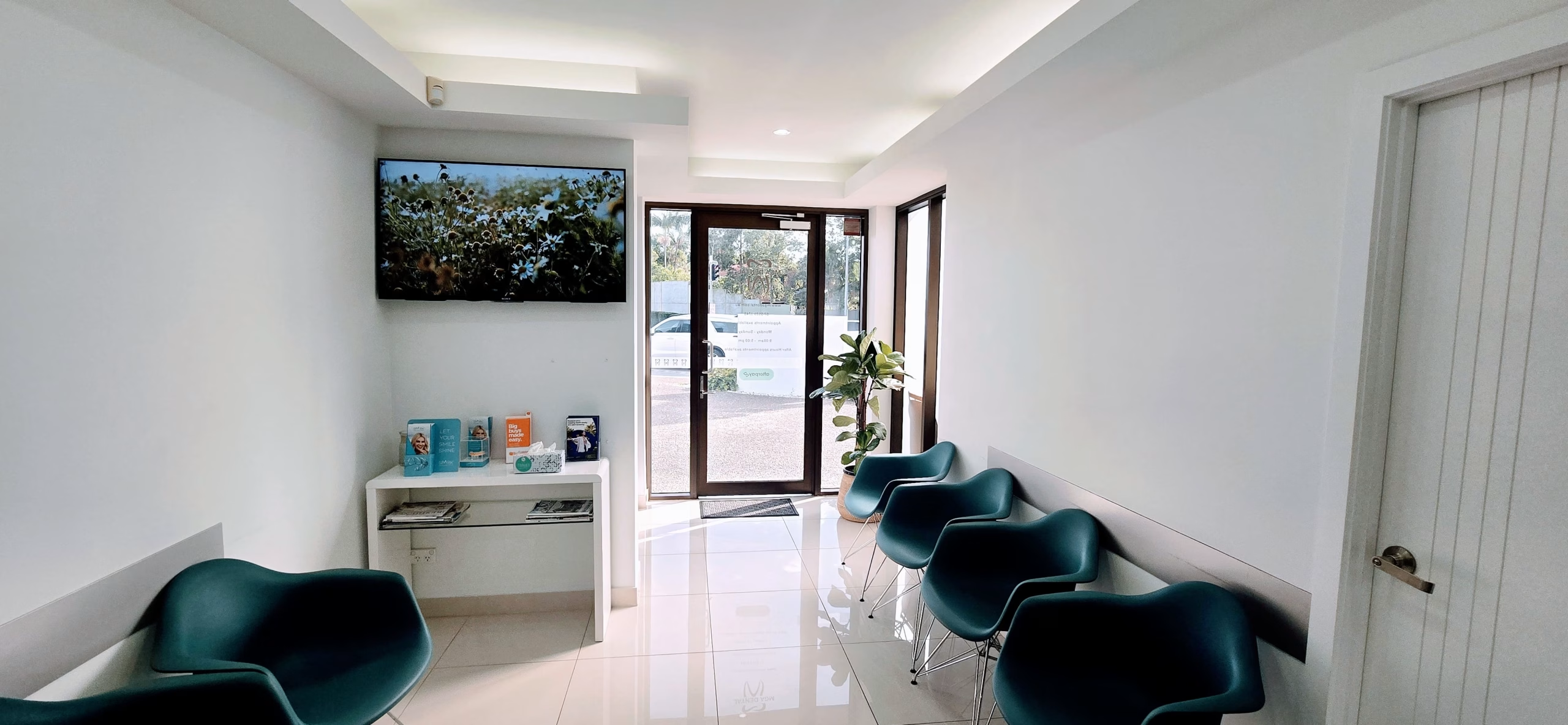
Emergency Dentist Gold Coast
Available after hours, 7 days a week, including weekends and public holidays, for the urgent dental care you need
Areas We Serve
We proudly offer emergency dental services to:
Surfers Paradise – Emergency Dentist Surfers Paradise
Bundall – Emergency Dentist Bundall
Sorrento – Emergency Dentist Sorrento
Benowa – Emergency Dentist Benowa
We also provide emergency dental care across the northern Gold Coast, including Southport, Labrador, Biggera Waters, Helensvale, Coomera, and Upper Coomera, as well as the southern Gold Coast, covering Broadbeach, Mermaid Waters, Burleigh Heads, Palm Beach, Currumbin, and Coolangatta.
In addition, we proudly serve nearby Northern NSW communities, including Tweed Heads, Kingscliff, and Banora Point.
Schedule your appointment today – call us or book online now.
Need help fast? Call us now at (07) 3273 3343 or Book Online.
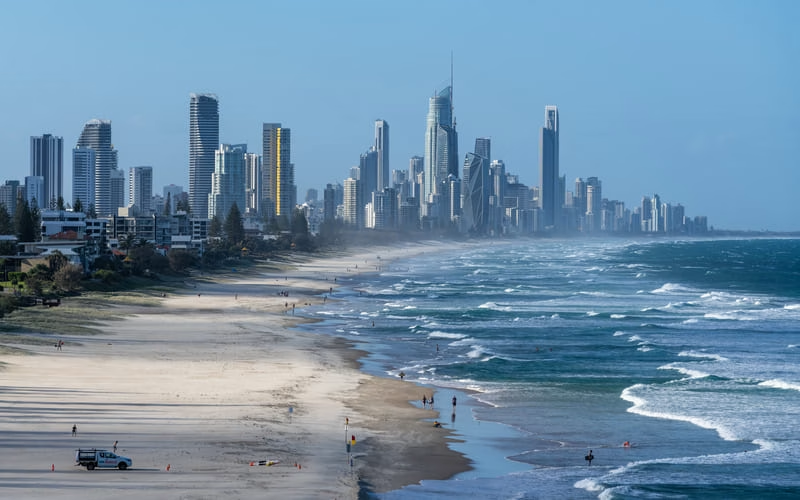
Why Choose MGA Dental for Emergency Dental Services?
For over 20 years, MGA Dental Gold Coast has delivered reliable emergency and urgent dental care to local families and individuals. Our skilled team handles everything from chipped or broken teeth to complex dental trauma and severe facial swelling with experience and care.
We know that during a dental emergency, timely treatment matters. That’s why we’re open 7 days a week, 365 days a year, including public holidays, offering after-hours appointments when other clinics are closed. When urgent dental care is required, you can rely on MGA Dental to provide prompt and professional support.
Why patients choose us:
- Same-day appointments for dental emergencies
- Skilled dentists using modern technology
- Open every day of the week, including Sundays
- Bulk billing for eligible DVA and CDBS patients
- Flexible payment options available
If you’re experiencing a dental emergency call us on 07 5539 9748, and we’ll schedule your emergency dental appointment. Or, book online anytime – we’re available 24/7.
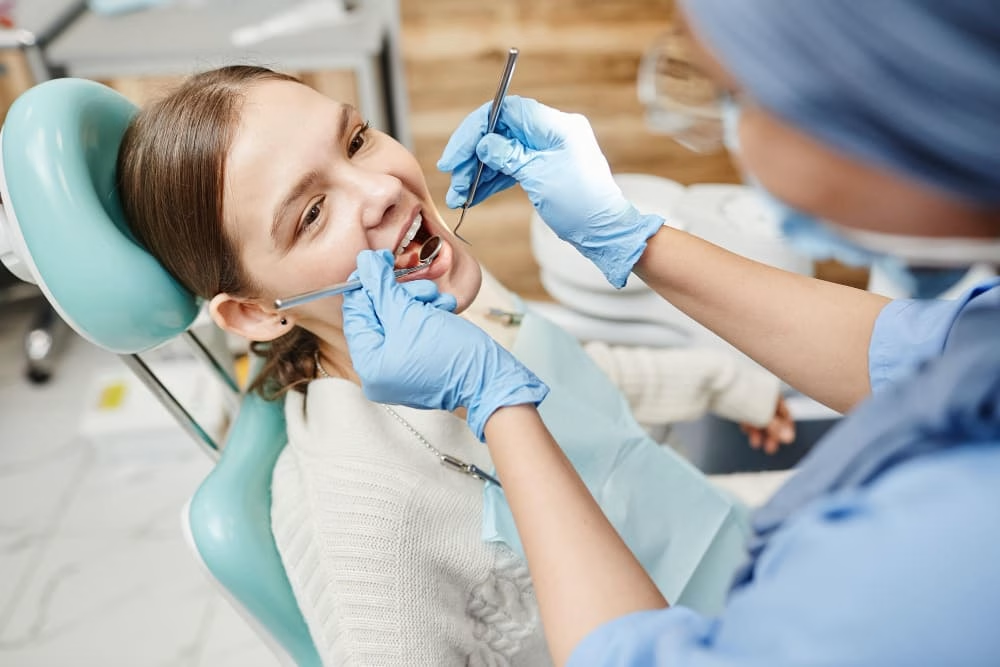
How Do I Know If It’s a Dental Emergency?
If you’re experiencing severe tooth pain or a persistent toothache, it’s a dental emergency.
Common emergencies include:
- Severe tooth pain
- Broken, chipped, or knocked-out teeth
- Facial swelling or abscess
- Bleeding that won’t stop
- Lost fillings or crowns
Not sure if your situation qualifies as a dental emergency? Contact MGA Dental. We’re here 7 days a week, including after-hours. Acting early can protect your tooth and help avoid more complicated procedures down the line.
What to Do in the Most Common Dental Emergency Situations?
Dental emergencies often happen without warning. Knowing how to respond and where to get immediate help can make all the difference – and that’s where MGA Dental comes in.
1. Toothache Relief: Immediate Steps
Toothaches can be caused by a variety of factors, including decay, infection, or injury. If you’re dealing with tooth pain, try these steps to help ease the discomfort:
- Rinse your mouth with warm salt water to cleanse the area and reduce bacteria.
- Gently use dental floss to remove any food particles trapped between your teeth.
- Take over-the-counter pain relief, such as ibuprofen or paracetamol (avoid aspirin for children).
- Apply a cold compress to the affected area to reduce swelling and numb the pain.
Nighttime Toothache Relief:
- Keep your head elevated to help reduce throbbing pain by limiting blood flow to the affected tooth.
- Apply a numbing gel with benzocaine for temporary relief.
- Avoid very hot or cold foods and drinks to prevent further sensitivity and discomfort.
If the pain persists, don’t hesitate to contact MGA Dental Gold Coast to arrange an urgent appointment with an emergency dentist.
Medicated Pain Relief:
If you can’t see a dentist right away, follow this pain management routine:
- Take 2 Nurofen (ibuprofen), then wait 3 hours
- Take 2 Panadol (paracetamol), then alternate every 3 hours as needed
Important Note: Always check medication safety based on your medical history and allergies, or consult a healthcare professional if unsure.
2. Chipped or Fractured Teeth and Lost Fillings
A chipped or fractured tooth, or a lost filling, can lead to more serious dental problems if left untreated. The exposed area can trap food and bacteria, increasing the risk of decay and further damage.
Common symptoms include:
- Pain while chewing
- Sensitivity to cold, hot, or even air exposure
- Discomfort that may worsen over time
If ignored, the damage can reach the dental pulp, resulting in severe toothaches and the need for more extensive treatment. At MGA Dental Gold Coast, we prioritise prompt repairs for chipped teeth and immediate replacement of lost fillings to protect your oral health and prevent discomfort.
3. How to Handle a Knocked-Out Tooth
A knocked-out tooth is a serious dental emergency, but quick action can greatly increase the chances of saving it. We recommend following these steps immediately:
- Check your mouth for missing teeth or fragments by looking or gently feeling with a finger
- Find the missing tooth or any broken pieces
- Handle the tooth by the crown (the visible part) and avoid touching the root
- Do not wash or rinse the tooth with water, disinfectants, or any other liquids
- Store the tooth in milk or, if milk isn’t available, keep it inside your cheek
If you’re unable to get immediate treatment, try placing the tooth back into its socket:
- Ensure the tooth is facing the right way before gently placing it back in
- Don’t force it – if it doesn’t fit easily, store it in milk and see a dentist as soon as possible
Treatment for Knocked-Out Teeth:
Reimplanting a knocked-out tooth is generally a straightforward procedure:
- The dentist will clean the socket with sterile water to remove any debris
- The tooth will be carefully repositioned into the socket
- A stabilizing splint, made of plastic resin and orthodontic wire, may be applied to keep the tooth in place while it heals
Unfortunately, the nerves and blood vessels in a knocked-out tooth usually don’t regenerate, which can lead to the tooth darkening over time. This is a sign that a root canal may be needed to preserve the tooth. For the best chance of saving your tooth, get to MGA Dental Gold Coast as quickly as possible.
There is an important distinction between primary (baby) teeth and permanent (adult) teeth when dealing with a knocked-out tooth.
For Children (Primary Teeth):
- Do NOT attempt to reinsert a knocked-out baby tooth. Unlike adult teeth, baby teeth should not be placed back in the socket, as this can damage the developing permanent tooth underneath
Keep the child comfortable and visit MGA Dental Gold Coast for an assessment to ensure no further injury has occurred.
For Adults (Permanent Teeth):
- Reinserting the tooth as quickly as possible is essential for its survival
- If placed back into the socket within 30 to 60 minutes, the chances of successful reattachment are significantly improved.
At MGA Dental Gold Coast, we specialize in emergency dentistry, providing fast and professional care for knocked-out teeth and other urgent dental concerns.
4. Children’s Dental Emergency and Sedation Options
Children are naturally active and prone to accidents that can affect their teeth. Some of the most common dental emergencies in children we treat include:
- Knocked-out teeth – If a permanent tooth is knocked out, try to place it back in the socket or store it in milk, and visit us immediately. Baby teeth should not be reinserted.
- Chipped or fractured teeth – Any breakage should be assessed promptly to prevent infection or further damage.
- Severe toothaches – Persistent pain may indicate an infection, deep decay, or an abscess that requires urgent care.
- Soft tissue injuries – Cuts or bleeding in the gums, lips, or tongue may need professional treatment.
- Loose or displaced teeth – If a tooth becomes loose due to trauma, it’s important to seek a professional evaluation to determine the best course of action.
At MGA Dental Gold Coast, we offer gentle, child-friendly and effective emergency dental care, ensuring their comfort and well-being throughout the process.
For young children or cases where local anesthesia isn’t suitable, MGA Dental can refer you to a paediatric dentist for treatment under sedation or general anesthesia (sleep dentistry), ensuring a stress-free, pain-free experience for children with dental anxiety or complex needs.
MGA Dental offers same-day emergency appointments when possible. We also accept bulk billing under the Child Dental Benefits Scheme (CDBS) for eligible families.
5. Causes and Issues Associated with Wisdom Teeth
For many patients, the upper and lower jaws are too small to fit all 32 teeth, leading to crowding and misalignment. As a result, wisdom teeth – the final set of molars – often emerge at improper angles or fail to fully erupt, causing pain, swelling, and discomfort.
Wisdom teeth typically erupt between the ages of 17 and 25, usually after the other teeth have settled. Due to limited space, they can become impacted or grow at an incorrect angle, pushing against neighboring teeth. This can lead to:
- Pain and swelling in the gums or jaw
- Infections from trapped bacteria around partially erupted wisdom teeth
- Damage or misalignment of surrounding teeth
- Cyst formation around impacted wisdom teeth
Wisdom Teeth Treatment
At MGA Dental Gold Coast, we offer expert wisdom tooth assessment and removal to prevent complications and relieve discomfort.
- Comprehensive Exam & X-Rays – Our dentist will assess your wisdom teeth using panoramic X-rays (OPG) and a clinical exam to determine if extraction is necessary.
- Wisdom Tooth Removal – If your wisdom teeth are problematic, removal may be required. The procedure typically includes:
- A small incision to access impacted teeth
- Removal of bone, if needed
- Careful extraction to minimize discomfort and ensure smooth healing
If you’re experiencing wisdom tooth pain, swelling, or signs of infection, don’t wait for complications to arise. Our experienced emergency dentists are here to assess the issue, manage your symptoms, and safely remove problematic wisdom teeth before they lead to more serious dental problems.
6. Crown Came Off
A dental crown can become loose or fall off for several reasons, with tooth decay beneath the crown being one of the most common. When decay forms under the crown, it weakens the natural tooth, causing the crown to lose its secure fit.
Losing a crown can lead to pain and sensitivity. To protect your tooth while awaiting treatment:
- Keep the crown in a safe place and bring it to your appointment
- Avoid chewing on the affected side to prevent further damage
- Keep the area clean to reduce the risk of infection or irritation.
While losing a crown may not always be an emergency, delaying treatment can lead to complications. Without the crown’s protective covering, the remaining tooth is more vulnerable to fractures and decay.
At MGA Dental Gold Coast, our experienced emergency dentists will assess your situation, identify the cause of the crown loss, and recommend the best solution.
7. Broken Dentures
For denture wearers, a broken denture can significantly impact daily life, making it difficult to speak and eat comfortably. Common causes of denture breakage include:
- Accidental drops onto hard surfaces
- Exposure to extreme heat (e.g., using boiling water for cleaning)
- Gradual wear and tear over time
If your denture cracks, fractures, or breaks completely, it’s important to see a dentist right away. At MGA Dental Gold Coast, we offer emergency denture repair services, but because repairs require sending your denture to a specialized lab, they may take a few days depending on the extent of the damage.
For severely damaged or worn dentures, a replacement may be the best solution. Our team can also create custom-fitted new dentures to restore both your smile and comfort.
8. Root Canal Treatment
A root canal is an effective treatment to repair and save a severely decayed or infected tooth, avoiding extraction.
When the nerve or pulp becomes infected, it can cause severe pain and complications if untreated. The procedure involves removing the infected tissue, cleaning the tooth’s inner chambers, and sealing it to prevent further infection.
Signs You May Need a Root Canal Treatment
If you experience any of the following, prompt dental care is essential:
- Severe toothache when chewing or applying pressure
- Prolonged sensitivity to hot or cold
- Tooth discoloration or darkening
- Swelling and tenderness in the gums
- A recurring pimple on the gums (abscess)
- Sometimes, no symptoms are present, so regular check-ups are crucial.
At MGA Dental Gold Coast, our skilled team provides emergency root canal procedures to relieve pain and restore your oral health.
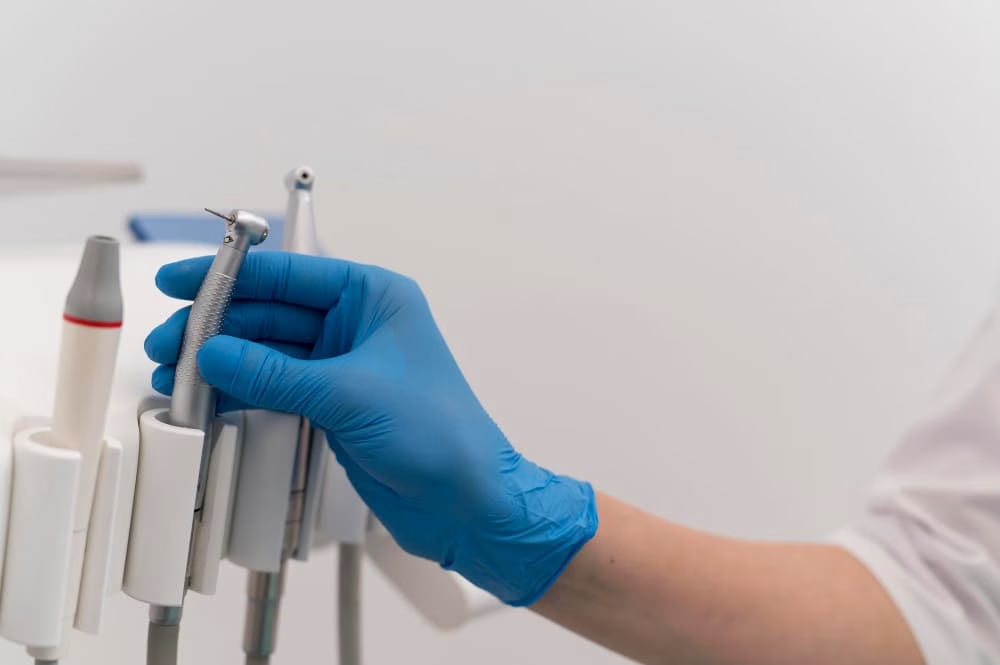
Workplace Injury
Dental injuries at work can occur unexpectedly, whether from falls, equipment accidents, or sudden impacts to the face.
Common workplace dental injuries include:
- Chipped, fractured, or knocked-out teeth
- Lacerations to the lips, gums, or tongue
- Broken dental restorations, such as crowns or dentures
- Jaw injuries or facial trauma
If you experience a dental injury at work, it’s crucial to seek immediate treatment to prevent further damage and ensure a smooth recovery. Our experienced emergency dentists at MGA Dental Gold Coast specialize in handling work-related dental injuries and provide personalized treatment based on your condition.
We also collaborate with WorkCover QLD, allowing eligible patients to claim their dental injury treatment under workplace compensation.
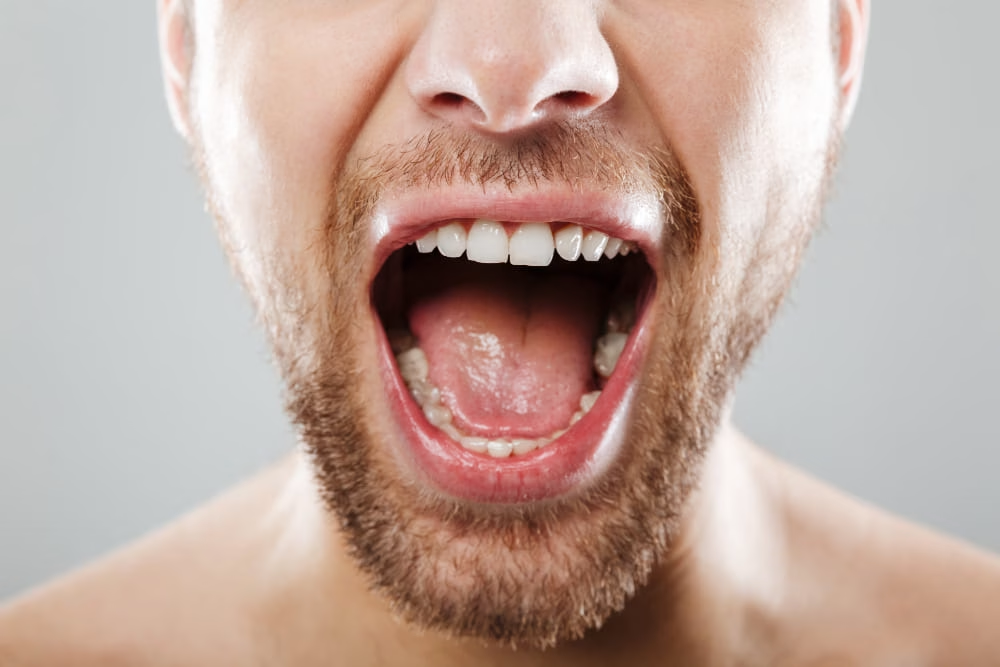
Orthodontic Emergency
Experiencing an orthodontic emergency? Issues like loose brackets, a poking archwire, or braces causing discomfort can be painful and disruptive. While most orthodontic concerns aren’t severe emergencies, they can still cause irritation and require prompt attention.
Common orthodontic emergencies:
- Loose or broken brackets – Can be reattached or secured to prevent further discomfort
- Protruding or loose archwires – Adjusted to avoid irritation and injury
- Braces cutting or rubbing against cheeks or tongue – Relief solutions provided to reduce discomfort.
At MGA Dental Gold Coast, we offer after-hours emergency care for minor orthodontic issues to provide relief until you can see your orthodontist. Our experienced team offers simple palliative treatments to ensure your braces are more comfortable without disrupting your ongoing treatment plan.
Emergency Dental Care for Interstate and Overseas Travellers and Students
Experiencing a dental emergency while traveling in Australia or studying abroad?
We understand how stressful it can be to deal with toothaches, dental trauma, or urgent issues when you’re far from home. That is why MGA Dental Gold Coast regularly assists tourists, business travellers, and international students who require urgent dental care. Our experienced team offers efficient, professional emergency dental care, ensuring you can return to enjoying your holiday, focusing on your studies, or continuing your business trip without discomfort.
How we assist international and interstate patients:
- Emergency dental care for tourists, business travelers, and international students
- Experience working with travel insurance providers – we assist with documentation and forms for claims
- Clear, comprehensive treatment reports after your visit to share with your regular dentist
After your appointment, you’ll receive a detailed report, including:
- Your presenting complaint
- Diagnostic steps taken (e.g., X-rays)
- Treatment provided and follow-up recommendations
- Prognosis comments for your regular dentist back home
We’ve helped patients from around the world, including the US, Canada, the UK, Europe, China, Japan, Malaysia, Indonesia, Brazil, South Africa, and New Zealand. Our team is dedicated to creating a welcoming environment for international patients and can assist in multiple languages.
Our goal is to ensure continuity of care – even after you leave the Gold Coast. If you’re visiting or studying in Australia and need urgent dental care, contact MGA Dental.
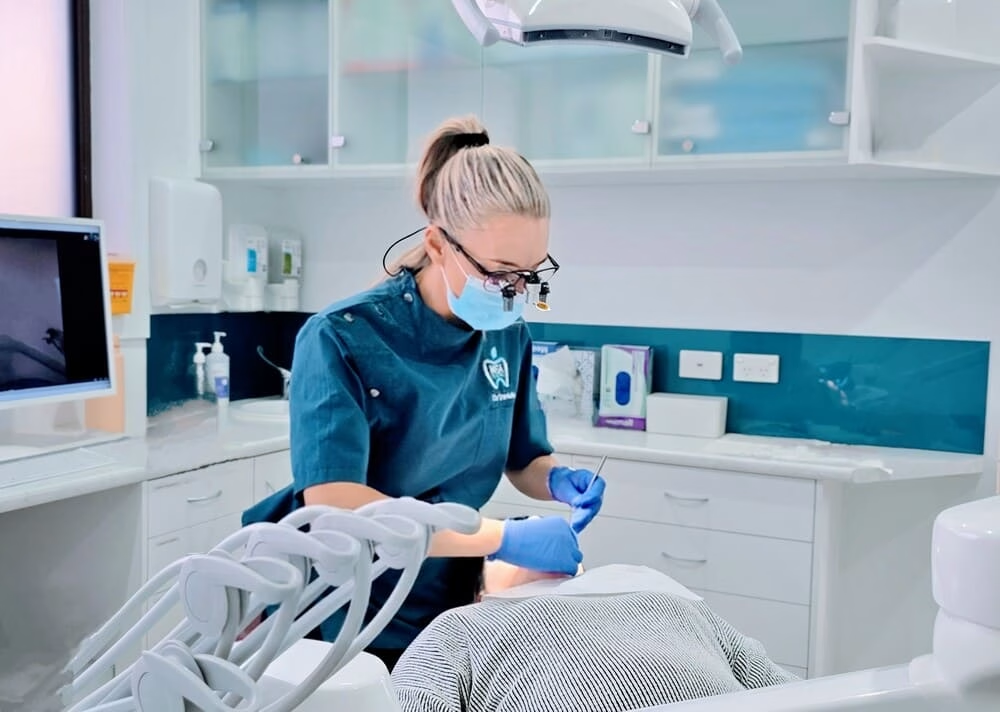
How Can I Prevent Dental Emergencies?
While dental emergencies can occur unexpectedly, preventive care significantly reduces your risk. Regular check-ups and occasional X-rays with your emergency dentist on the Gold Coast help maintain your oral health and identify potential issues before they become serious.
Make sure to brush and floss daily, wear a mouthguard during sports, and schedule regular check-ups.
If you need urgent care, reach out to MGA Dental Gold Coast – your trusted emergency dentist, for prompt, professional assistance.
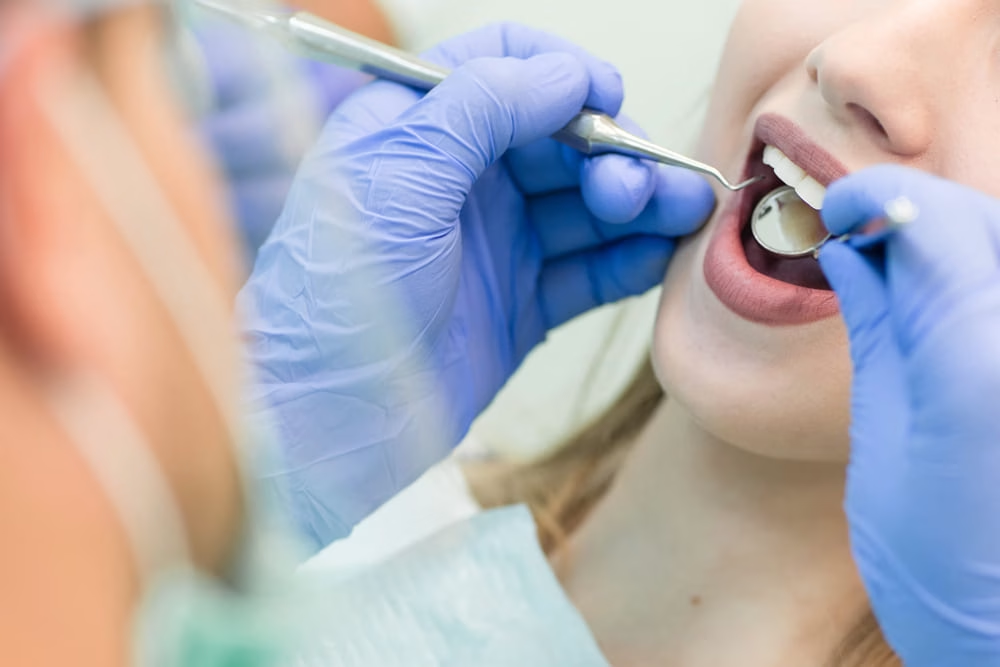
How MGA Dental Supports You in a Dental Emergency
At MGA Dental Gold Coast, we offer prompt, professional care for all types of dental emergencies.
Even seemingly minor dental issues can develop into something more serious if not treated early. Timely care not only helps prevent complications but can also increase the chances of saving your tooth.
Our skilled emergency dental team is equipped to manage everything from dental trauma and infections to broken crowns and severe tooth pain. Even in cases without major discomfort, any visible damage or sensitivity should be checked promptly to avoid long-term issues.
We provide a comprehensive range of emergency dental services, including:
- Relief from toothaches and infection treatment
- Tooth extractions, including impacted wisdom teeth
- Emergency root canal procedures
- Repair of chipped, broken, or knocked-out teeth
- Treatment for gum infections and abscesses
- Replacement of lost fillings, crowns, or implants
- Gentle emergency dental care for children
If you’re experiencing a dental emergency on the Gold Coast, MGA Dental is here 7 days a week – including after-hours, weekends, and public holidays. Call our team and we’ll arrange the next available emergency appointment. Please note: after-hours bookings depend on staff availability and may involve a call-out fee, which will be confirmed when scheduling.
Emergency vs. General Dentist: What’s the Difference?
While both general dentists and emergency dentists offer essential care, an emergency dentist specializes in addressing urgent dental problems that need immediate attention.
The main differences include:
- Availability: Emergency dentists at MGA Dental Gold Coast provide extended hours, including weekends and public holidays, ensuring patients can receive urgent care whenever necessary. In contrast, general dentists typically operate during regular business hours. Furthermore, we offer same-day emergency appointments for patients in need of immediate care. In contrast, general dentists usually require appointments to be scheduled in advance.
- Urgent Treatments: Emergency dentists address severe pain, dental trauma, knocked-out teeth, abscesses, and uncontrolled bleeding, while general dentists primarily focus on routine check-ups, fillings, and preventive care.
- Advanced Emergency Procedures: Emergency dentists are trained to perform urgent procedures like tooth extractions, root canals, and abscess drainage on short notice, while general dentists may refer patients to a specialist for more severe issues.
When you need urgent dental care, MGA Dental Gold Coast is ready with same-day emergency appointments – a service not always available at general dental clinics. We prioritise fast, effective treatment for issues that require immediate attention.
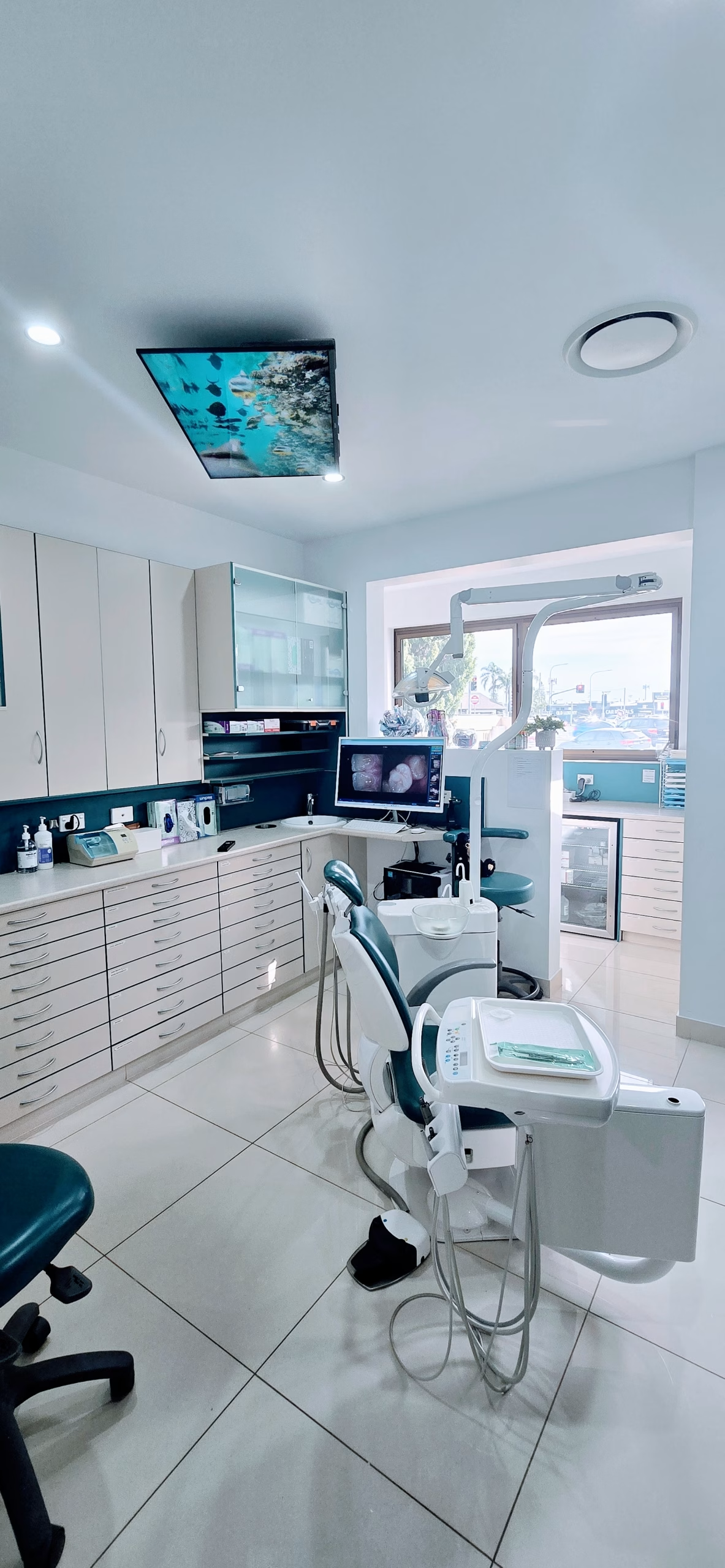
What Can the ER Do for a Tooth Emergency?
Hospital emergency rooms (ERs) are not generally equipped to offer full dental treatment. While ER doctors can manage severe pain and infections with antibiotics or pain relief medication, they cannot perform dental procedures like fillings, extractions, or root canals.
If you’re dealing with a severe toothache, abscess, or dental trauma, seeing an emergency dentist like MGA Dental Gold Coast is your best option for prompt and effective care.
We offer urgent dental services, including:
- emergency tooth extractions
- treatment for abscesses and infections
- root canal therapy to save infected teeth
- pain management and relief.
Instead of going to an ER, which may only offer temporary relief, schedule an appointment with MGA Dental for professional dental care.
Our emergency dentist is here every day of the week – including after-hours and public holidays, to provide the care you need without delay. If you require urgent dental treatment, contact us and we’ll book you in for the next available appointment.
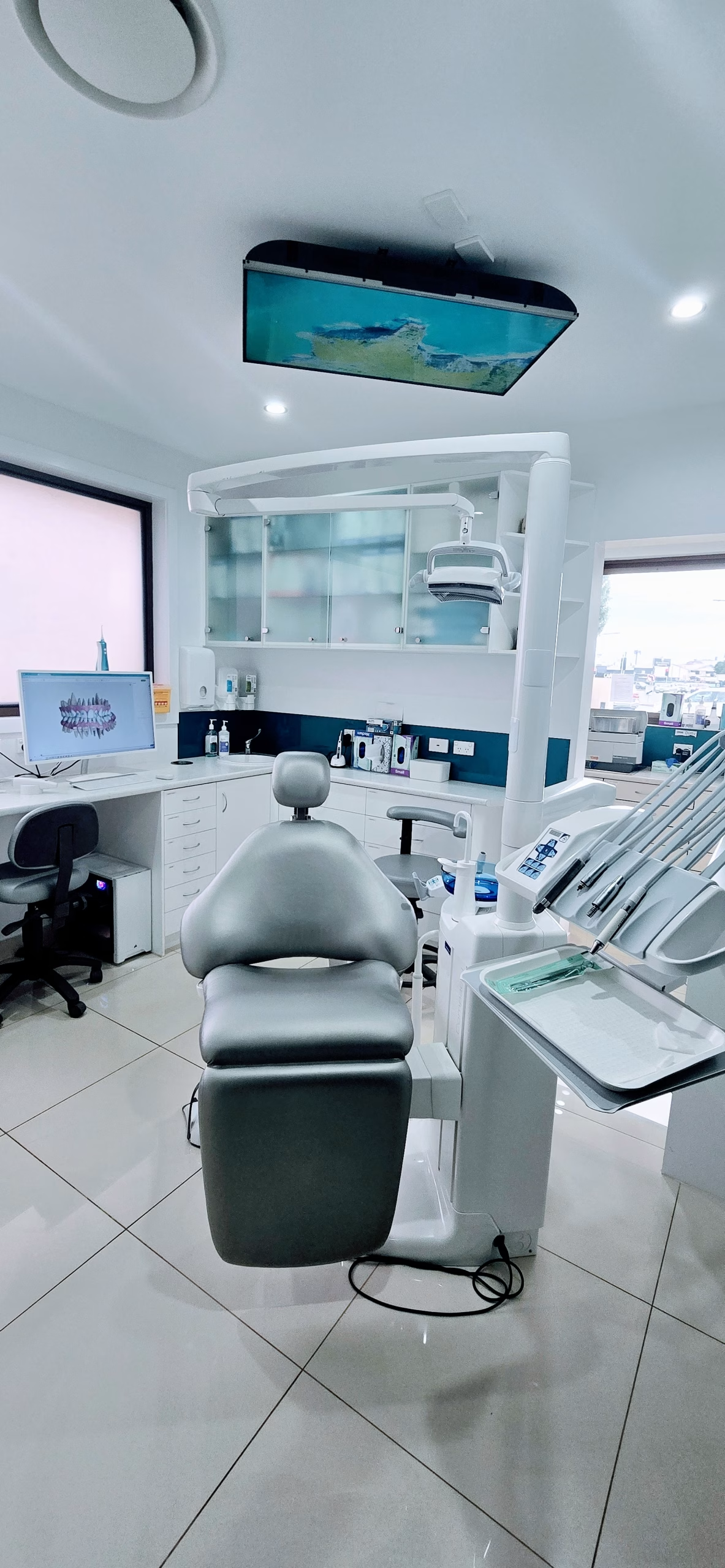
How to Book an Emergency Appointment
- Book online 24/7 for immediate availability
- Call us directly at 07 5539 9748 to speak with our team and schedule urgent care
Email us at [email protected], and one of our team members will respond as soon as possible.
Emergency Dental Costs on the Gold Coast
At MGA Dental Gold Coast, we aim to provide affordable emergency services without compromising on quality. The cost of emergency dental treatment varies based on the complexity of the required care. Below is a general price range for common emergency dental procedures.
General Pricing Guide:
- Emergency Consultation & Xray: From $150
- Tooth Extractions: From $250
- Dental Fillings: From $195
- Root Canal Therapy: From $900 per tooth
- Wisdom Tooth Removal: From $285
A standard emergency consultation typically ranges from $150 to $250 or more. Complex cases (e.g., major trauma, multiple tooth injuries) may incur higher costs, depending on the treatment required. Treatment fees can only be determined after a clinical assessment. Your dentist will discuss all available options and associated costs before proceeding, ensuring you can make an informed decision about your care.
At MGA Dental, we understand that unexpected dental expenses can be stressful. To make emergency treatment more accessible, we accept a range of payment options and health funds. Payment is required at the time of treatment.
For more details, please reach out to our team, and we’ll be happy to provide information on pricing and payment plans.
Payment Options at MGA Dental Clinic
At MGA Dental Gold Coast, we offer a range of flexible payment options to ensure a convenient experience for our patients. We accept:
- EFTPOS
- HiCAPS (for on-the-spot health fund rebates)
- Cash
- Payment Plans – Available through Humm, ZipPay, and Afterpay (subject to credit approval)
- Department of Veterans’ Affairs (DVA) Gold Card Holders – Bulk billed
- Child Dental Benefits Scheme (CDBS) – Bulk billed for eligible children
If you have any questions regarding payment options or need assistance, please feel free to contact us.
Can You Use Superannuation for Emergency Dental Treatment?
Superannuation cannot be used for emergency dental treatment. The early release process through the Australian Taxation Office (ATO) involves an application that can take several weeks or even months for approval.
Since payment is required at the time of treatment, superannuation is not a suitable option for immediate dental emergencies. However, MGA Dental Gold Coast offers flexible payment options, including Humm and Afterpay, to help you manage the cost of treatment.
For more details on payment options, please feel free to contact us.
For further information on the superannuation release process, click here.
Does Medicare Cover Dental Emergencies?
In Australia, Medicare does not typically cover general dental treatments, including emergency dental services for adults. However, there are exceptions for eligible children and adults under specific government-funded programs.
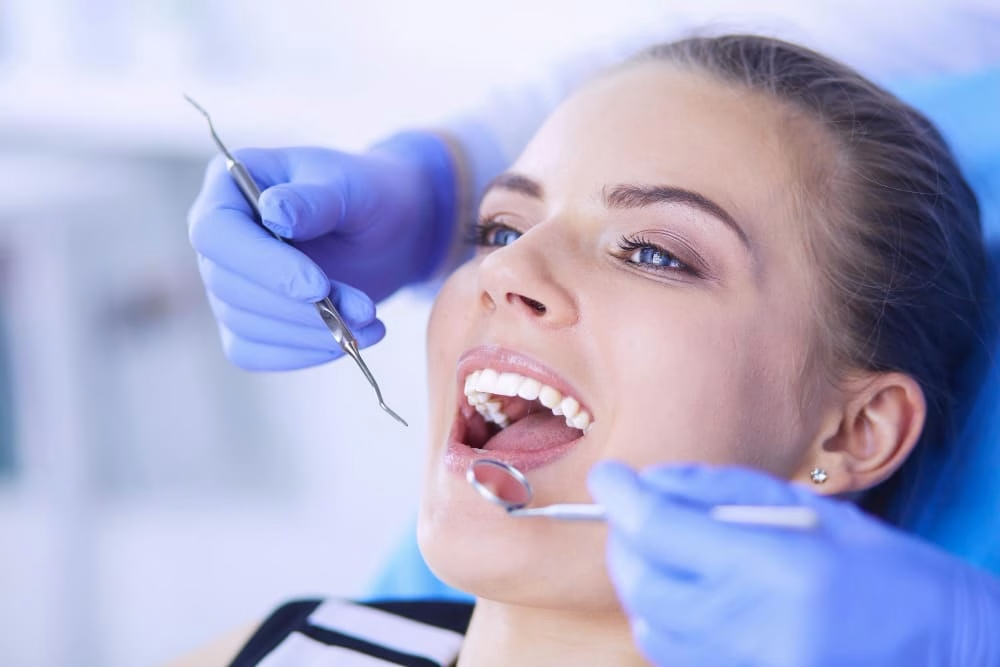
Free Emergency Dental Treatment on the Gold Coast
If you’re on the Gold Coast, there are options for free or subsidised emergency dental treatment, depending on your eligibility. The availability of these services depends on factors like age, income, and concession card eligibility.
Child Dental Benefits Schedule (CDBS)
MGA Dental Gold Coast proudly supports the Child Dental Benefits Schedule (CDBS), a government initiative providing eligible children aged 0–17 with up to $1,052 in dental care over two calendar years. The CDBS covers a range of essential services, including:
- Emergency dental check-ups
- Fillings and extractions
- Root canal treatments
- Preventive care like fluoride applications
If your child is eligible, we can bulk bill all covered treatments, meaning no out-of-pocket costs for you. To confirm eligibility, give us a call on (07) 5539 9748.
Free Public Dental Services for Concession Card Holders and Seniors
In Queensland, eligible adults, seniors, and concession cardholders can access free emergency dental care through QLD Health public dental clinics and hospitals. To qualify, you must:
- Hold a Pensioner Concession Card or a Health Care Card
- Be a Queensland resident
- Be eligible for public dental services under QLD Health
Eligible adults can access free public dental services, including:
- Emergency pain relief
- Extractions
- Fillings and restorative treatments
- Treatment for dental infections and abscesses
These services are offered through Queensland public hospitals and dental clinics, though wait times may vary depending on demand.
If you need urgent treatment and can’t wait for public care, consider visiting MGA Dental Gold Coast. We offer same-day emergency appointments to promptly address your dental concerns.
Concession Card Holders & Public Clinics
Queensland Health offers public dental services for eligible adults through select clinics that accept patients with concession cards. These clinics provide subsidized emergency dental care for individuals with the following:
- Health Care Card
- Pensioner Concession Card
Public dental clinics offer treatments like emergency pain relief, extractions, and fillings, though wait times may vary based on demand.
If you’re eligible for public dental care but need immediate attention, consider seeking private emergency dental care at MGA Dental Gold Coast, where we deliver prompt, professional treatment for urgent dental issues.
For more details on whether you qualify for CDBS or public clinic dental services, or to book an emergency appointment, call us at (07) 5539 9748.

MGA Dental Gold Coast – Affordable Emergency Dental Care
If you’re not eligible for free public dental care, MGA Dental Gold Coast provides affordable emergency dental treatments with flexible payment options. We accept:
- Health funds and private insurance
- Bulk billing for eligible CDBS patients
- Payment plans for urgent treatments
For immediate emergency dental care, contact us to discuss your options.
How Private Health Funds Apply to Emergency Dental Treatment
MGA Dental Gold Coast accepts all Private Health Funds through HICAPS, enabling seamless on-the-spot claims processing for your convenience.
Health fund rebates are available for emergency dental treatments, with the exact rebate amount depending on your level of coverage. To make the process easier, we offer instant claims processing through HICAPS – just bring your health fund card, and we’ll handle the claim on the spot.
Since rebate amounts can vary, we recommend checking with your health fund provider to get the most accurate information about your entitlements.
For more information on participating health funds, click here.
If you need assistance, please feel free to call us at 07 5539 9748
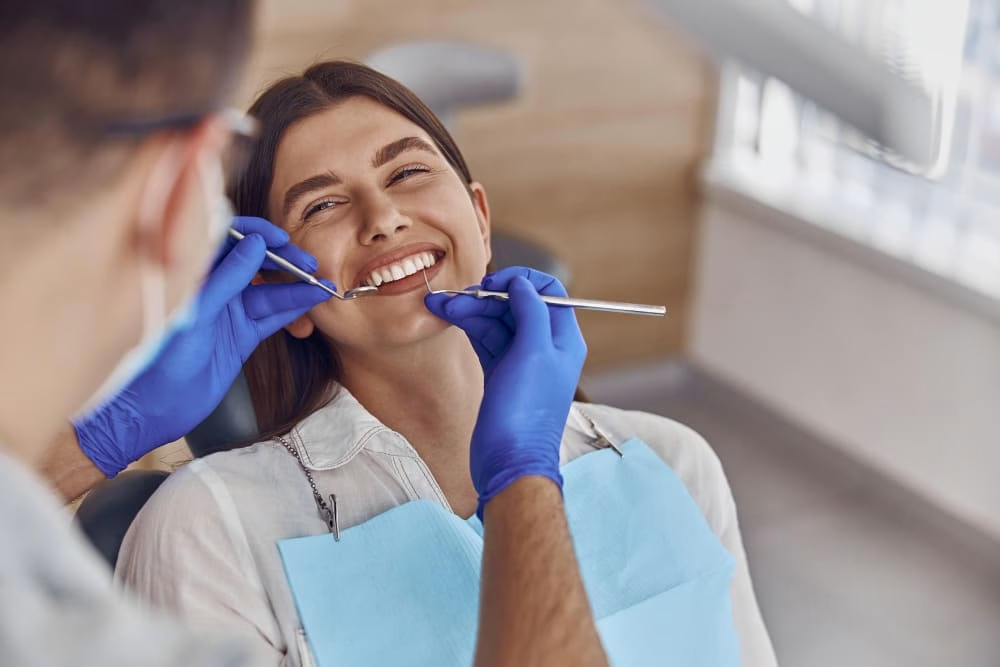
Bulk Billing for Emergency Dental Treatment
MGA Dental provides bulk billing for eligible patients under the following programs:
- Department of Veterans Affairs (DVA) Gold Card Holders – Learn more here
- Child Dental Benefits Scheme (CDBS) – Learn more here
For more information on eligibility and coverage, please feel free to contact us.
Flexible Payment Plans
At MGA Dental Gold Coast, we provide flexible payment plans to make high-quality dental care more accessible. Our payment options include:
- Afterpay – Learn more here
- Humm – Learn more here
For further details on eligibility, repayment terms, and how to apply, please contact us at 07 5539 9748.
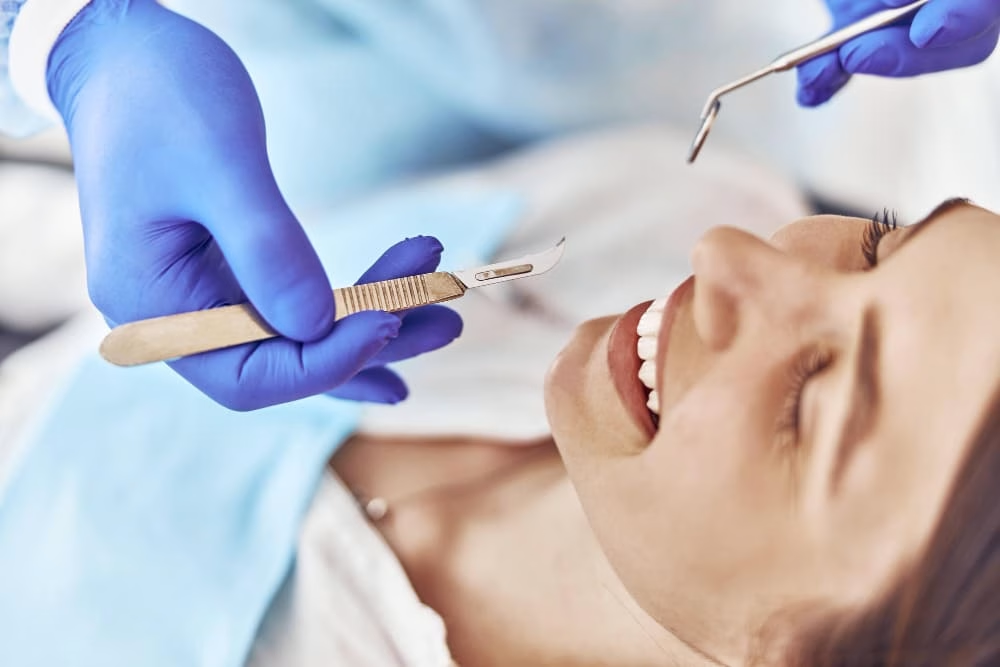
Searching for a Gold Coast Dentist Open on Sundays?
Need emergency dental care without the wait? MGA Dental Gold Coast is here when others are closed. Our skilled emergency team is available after hours, on Sundays, weekends, and public holidays – so you’re never left without support.
Whether you’re experiencing pain, swelling, or another urgent dental issue, our emergency dentists offer same-day appointments and affordable care to get you feeling better fast.
We’re your trusted emergency and weekend dentist on the Gold Coast – because dental relief shouldn’t have to wait.
Where Are We Located – MGA Dental Gold Coast Location
MGA Dental Gold Coast is conveniently located at 122 Salerno Street, Surfers Paradise, Gold Coast, easily accessible by car and public transport. Our centrally located emergency dental clinic provides expert care for patients across the entire Gold Coast, including northern NSW.
Here’s how you can find us:
By Car:
- For step-by-step driving directions, click here.
By Public Transport:
- By Tram: The nearest tram stop is Northcliffe Station, a short walk from our clinic.
- By Bus: Several TransLink bus routes service the Surfers Paradise area, with nearby stops including Bus Stop 731, 738, 741, and 747 – all within walking distance.
Book an Emergency Dental Appointment on the Gold Coast
If you’re dealing with a dental emergency on the Gold Coast, MGA Dental is ready to assist – 7 days a week, including after-hours and public holidays. Our skilled team provides prompt, professional, and affordable emergency dental care right when you need it most.
Get in touch with MGA Dental Gold Coast today for prompt emergency dental care:
- Call us on 07 5539 9748 for immediate availability
- Secure an appointment online 24/7 through our website
- Email us at [email protected], and a member of our team will get back to you as soon as possible.
Whether you’re experiencing pain, injury, or a sudden dental concern, our emergency dentists are here to deliver the care you need – right when you need it.
FAQs About Emergency Dentists in the Gold Coast
What should I do if I have a severe toothache?
Persistent tooth pain is a warning sign. Rinse your mouth with warm saltwater and take over-the-counter pain relief. Then, contact MGA Dental Gold Coast. We’ll see you promptly, identify the cause, and provide effective relief.
How should I handle a knocked-out tooth?
Pick up the tooth by the crown (the top), not the root. Rinse it gently, avoid scrubbing, and try to place it back in the socket. If that’s not possible, store it in milk or saliva. Contact MGA Dental immediately – acting quickly is crucial to saving the tooth.
Can a chipped or cracked tooth wait for treatment?
Even small chips can lead to bigger issues. Contact our team to have it assessed. We offer prompt repairs, such as bonding, fillings, or crowns, to prevent further damage.
What should I do if I lose a filling or crown?
Keep the filling or crown if you have it, and avoid chewing on that side to prevent further damage.
Is a dental abscess considered an emergency?
Yes, a dental abscess is a serious infection that can spread if not treated promptly. Common signs include swelling, pain, and fever. Don’t wait – contact MGA Dental immediately for emergency care.
What if my gums are bleeding or swollen?
Sudden or ongoing gum swelling and bleeding may indicate infection or gum disease. If the discomfort persists, schedule an appointment at MGA Dental Gold Coast. Early treatment helps prevent further complications.
Are broken dentures an emergency?
Yes, especially if they affect your ability to eat or speak. Avoid attempting DIY repairs. Bring your dentures to our dental clinic, and we’ll professionally repair or replace them.
Should I go to the hospital for a dental emergency?
Hospitals can help with pain or swelling, but they don’t provide full dental treatment. Go to the hospital only if you’re experiencing life-threatening symptoms like facial swelling that affects breathing or serious trauma.
For all other urgent dental issues, MGA Dental Gold Coast offers prompt, expert care – 7 days a week.
What to expect at your emergency dental appointment?
Your emergency dental visit will follow a simple process to ensure optimal care. We’ll examine your mouth, take X-rays if necessary, and discuss treatment options with clear pricing. If specialized care is needed, we’ll refer you to a specialist, but our priority is to relieve any pain or discomfort right away.